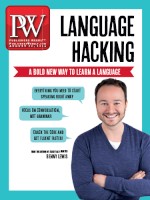The Philly-based popular novelist (Good in Bed) and nonfiction writer Jennifer Weiner describes how her sparkling new memoir, Hungry Heart, came to be.
Why a memoir at this point in your career?
I’m always asked whether my stories are true and where they come from, so I’ve been telling these stories in various forms for about 15 years. Initially, this book was going to be a collection of previously published essays and some new work. Once I started writing, the stories unfurled and the book took on a life of its own.
So how much is new?
About three quarters. We were able to cherry-pick the previously published pieces, using just the very best, those that really resonate. I finished the memoir when I was 45, and if I’m lucky like my Nana, who is 100, it’s possible that I could make it to 90. It’s like getting to the halfway point and wanting to tell the stories about how I got to this place, including the bumps in the road.
You were perhaps the first to address body image issues in chick lit. Why is this still an issue?
I always come back to “follow the money.” The diet and weight loss industry is tremendously profitable. If every woman woke up tomorrow feeling totally fine about herself, think of what would happen to all the commercial diet programs and plastic surgeons, the curling wands, the waxing strips, all of it. As long as there’s money to be made from female anxiety, there are going to be industries devoted to giving us the message, “You’re not okay, and there are things about yourself that you need to fix right away.”
Do you still describe yourself as a chick lit writer?
I do, but just for shorthand like when I’m on Twitter. When all of these “single girl in the city” books were coming out from 2004 to 2006, the genre was really exploding. But then a lot of those authors got married and had kids and started writing about that. The term always had this built-in dismissiveness to it, so I am not sad to see it go, but I’m not happy to see it replaced by “women’s commercial fiction,” which does not go trippingly off the tongue. And when men write those books, they’re just called books.
As a writer, why do you enjoy Twitter?
Many reasons. I love Twitter for the community, for the discipline, and because it gives me a forum. It’s this immediate outlet where you can critique and hold accountable and call out what you see as inequitable treatment or sexism or double standard. People who don’t love Twitter and are the haughtiest about calling it a terrible place for a “real writer” are those who have never had a problem having their voices heard.



 Volume 263
Issue 34
08/22/2016
Volume 263
Issue 34
08/22/2016





